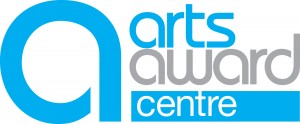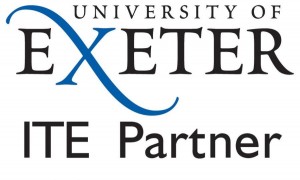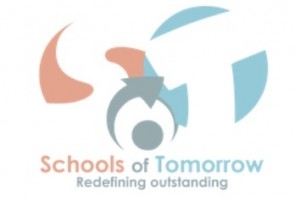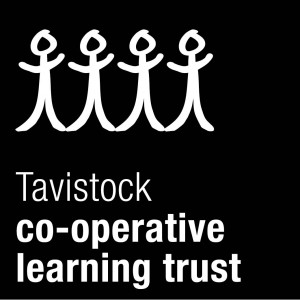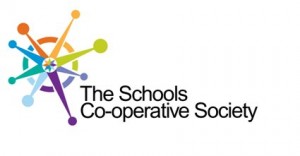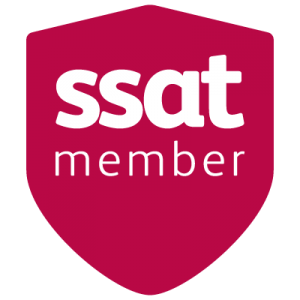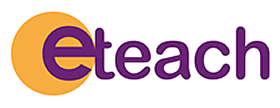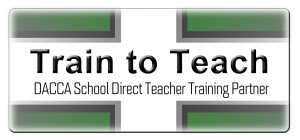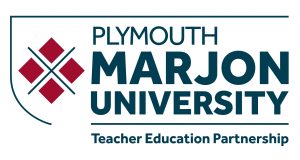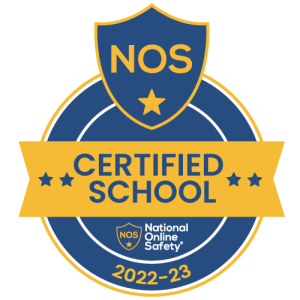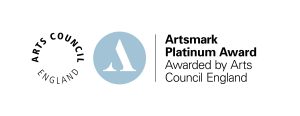Letter to all parents/carers – start to spring term
Dear Parent/Carer
I am writing to you to update you all following the announcements made yesterday by Gavin Williamson, Secretary of State for Education.
From the start of the spring term, there will now be a staggered return to school for different year groups and a plan to introduce a testing regime in school to identify anyone who is asymptomatic, yet positive for coronavirus.
The only students who should return to school on the 5 January are the children of critical workers and vulnerable students. I have included a list at the end of this letter to guide you if you are unsure about these categories.
In the week beginning 11 January all Y11, Y13 and students in Y12 who have imminent examinations will be able to return to school for face to face teaching.
From 18 January all other students in Y7, 8, 9,10 and 12 may return for face to face teaching.
Students who are being asked to work from home over the period announced by Mr Williamson will receive remote learning through google classroom. School buses will run as normal to ensure the students who are entitled to attend school can do so.
Testing will begin for students in the week beginning 11 January for those who are on site. The test we are required to offer is called a lateral flow test. This is a self-administered swab test that is undertaken in a controlled environment on the school site. It will be offered to all students in the week that they return, and again if they are identified as a close contact for someone in the school community who is positive for coronavirus. It is not compulsory, and consent must be given for these tests to be taken. I will send more information regarding testing, along with a consent form and information early next week.
Regardless of the staggered start for students, if your son or daughter has an external examination next week, they should attend school in order to take it. If they are unable to return home immediately after the examination because they rely on a bus for transport, then they can stay in school for the remainder of the day and undertake work that would have been set remotely. If you have any questions about exams, please contact Mr Palmer who will be happy to help you. His email address is b.palmer@tavistockcollege.org.
If you are concerned about remote learning because your son or daughter cannot access a computer, we have a limited number of chromebooks available for student use. Mrs Stephens is able to advise if this is the case. Her email address is w.stephens@tavistockcollege.org.
I know many of you will have additional questions and concerns. I am sorry to be sending you this information at such short notice for the start of term, but the announcements were only made yesterday.
There will be a further update as soon as the term begins on 5 January. Thank you for your patience.
May I take this opportunity to wish you all a happy new year
Yours sincerely
Principal
Sarah Jones
Vulnerable children and young people
Vulnerable children and young people include those who:
- are assessed as being in need under section 17 of the Children Act 1989, including children and young people who have a child in need plan, a child protection plan or who are a looked-after child
- have an education, health and care (EHC) plan
- have been identified as otherwise vulnerable by educational providers or local authorities (including children’s social care services), and who could therefore benefit from continued full-time attendance, this might include:
- children and young people on the edge of receiving support from children’s social care services or in the process of being referred to children’s services
- adopted children or children on a special guardianship order
- those at risk of becoming NEET (‘not in employment, education or training’)
- those living in temporary accommodation
- those who are young carers
- those who may have difficulty engaging with remote education at home (for example due to a lack of devices or quiet space to study)
- care leavers
- others at the provider and local authority’s discretion including pupils and students who need to attend to receive support or manage risks to their mental health
Critical workers
Parents whose work is critical to the coronavirus (COVID-19) and EU transition response include those who work in health and social care and in other key sectors outlined in the following sections.
Health and social care
This includes, but is not limited to, doctors, nurses, midwives, paramedics, social workers, care workers, and other frontline health and social care staff including volunteers; the support and specialist staff required to maintain the UK’s health and social care sector; those working as part of the health and social care supply chain, including producers and distributors of medicines and medical and personal protective equipment.
Education and childcare
This includes:
- childcare
- support and teaching staff
- social workers
- specialist education professionals who must remain active during the coronavirus (COVID-19) response to deliver this approach
Key public services
This includes:
- those essential to the running of the justice system
- religious staff
- charities and workers delivering key frontline services
- those responsible for the management of the deceased
- journalists and broadcasters who are providing public service broadcasting
Local and national government
This only includes those administrative occupations essential to the effective delivery of:
- the coronavirus (COVID-19) response, and the delivery of and response to EU transition
- essential public services, such as the payment of benefits and the certification or checking of goods for import and export (including animal products, animals, plants and food), including in government agencies and arms length bodies
Food and other necessary goods
This includes those involved in food:
- production
- processing
- distribution
- sale and delivery
- as well as those essential to the provision of other key goods (for example hygienic and veterinary medicines)
Public safety and national security
This includes:
- police and support staff
- Ministry of Defence civilians
- contractor and armed forces personnel (those critical to the delivery of key defence and national security outputs and essential to the response to the coronavirus (COVID-19) outbreak and EU transition)
- fire and rescue service employees (including support staff)
- National Crime Agency staff
- those maintaining border security, prison and probation staff and other national security roles, including those overseas
Transport and border
This includes those who will keep the air, water, road and rail passenger and freight transport modes operating during the coronavirus (COVID-19) response and EU transition, including those working on transport systems through which supply chains pass and those constructing or supporting the operation of critical transport and border infrastructure through which supply chains pass.
Utilities, communication and financial services
This includes:
- staff needed for essential financial services provision (including but not limited to workers in banks, building societies and financial market infrastructure)
- the oil, gas, electricity and water sectors (including sewerage)
- information technology and data infrastructure sector and primary industry supplies to continue during the coronavirus (COVID-19) response
- key staff working in the civil nuclear, chemicals, telecommunications (including but not limited to network operations, field engineering, call centre staff, IT and data infrastructure, 999 and 111 critical services)
- postal services and delivery
- payments providers
- waste disposal sectors
Letter to all parents/carers – Update from the Principal
Dear parents and carers
I am writing to thank you all for the support you have given to the school over this last term. It has been a difficult time for many families so we are more grateful than ever for your flexibility. Whilst we have not always got it right, we have tried hard to adapt to new ways of working to meet the ever changing conditions we find ourselves in.
Yesterday evening, the Department for Education updated schools on changes to the start of term. In January, all secondary schools are required to operate a staggered start to the term. Only vulnerable children, the children of critical workers, and students who have examinations this academic year are expected to access on-site education provision from the 5 January. These are all Y11 and Y13 students, and some Y12 students. Y12 should only attend if they study Travel and Tourism, Applied Business, RSL Music, Sport (single and double) and Health and Social Care. All other students should not attend that week and will be provided with remote education until 11 January when they should return to school and resume face-to-face attendance. We understand that the school buses will run as normal from 5 January.
The government has also announced that schools will be offered lateral flow testing from January. This test helps identify individuals who may be positive for COVID-19 but are asymptomatic (showing no symptoms). The details, training plan, arrangements and sources for these tests have not been released yet, but we do know that the workforce and those attending in the week commencing 4 January will be prioritised for testing first. Testing will not be mandated, it is an offer. Students will not need to have had a test in order to return to school on 11 January.
Regardless of the date that students return to school for face to face teaching, all of the arrangements we put into place this term will remain. This means that students have their own year group social area and entrance, their own eating area and times, the one way system must be followed and good respiratory and hand hygiene rules must be maintained. Enhanced cleaning will still be in operation. Students will be required to use the hand sanitiser provided, wear a face covering in all circulation spaces and on the bus, and rooms will remain well ventilated.
If anyone in your household shows signs and symptoms of COVID -19 please do not send your children to school. A regular PCR test should be carried out as soon as possible. A negative result will mean that fac-to-face teaching can continue. This is in everyone’s interest and will help stop the spread of the virus.
We will continue to be part of the NHS contract tracing programme up until Christmas Eve. If a student tests positive in this time, please let us know by contacting office@tavistockcollege.org.
May I take this opportunity to wish you all a merry Christmas.
Kind regards
Sarah Jones
Letter to all parents/carers – Letter from the Principal
Dear parents and carers
I would like to thank you for your support during the last week, where, for the first time since the pandemic began, we have had confirmed cases of Covid-19 within the academy.
We were confident in our systems and were able on each occasion to quickly identify, with the help of Public Health England, those individuals who were ‘close proximity contacts’ and take the right action. Our risk assessments, teaching and learning practices, remote learning policies and community bubble areas within the school are under constant review. We have come a long way since September, but sadly we are seeing increased cases of coronavirus in West Devon.
It is with this in mind that I am writing to inform you that we intend to strengthen our approach to health and safety in this pandemic still further. There will be additional actions and new systems that will be implemented throughout the school from 7 December. This will include a strict one way system around each building, and more movement between lessons in order to prevent groups congregating. We will continue to ensure we have separate year group entrances, ensure year groups have separate eating areas and maintain the use of face coverings in the circulation spaces. We know from the latest guidance that ventilation and hand sanitising are the greatest mitigating factors against the spread of the virus. This is why we have to fully ventilate the buildings (even though it is cold) and ask students to use the sanitiser provided.
This change will also see a return to the use of more specialised subject rooms and spaces to learn in. Teachers will take on greater cleaning responsibilities during lesson changeovers, whilst being able to call upon their subject specific teaching and learning tools and resources to improve the teaching and learning within the classrooms for the students.
None of the changes will affect our year group community areas for registration or recess times where all year groups will have their own designated areas for pastoral care, eating and outdoor play, as well as their own community bathrooms. This means that there will be no direct crossing of our communities for longer than is advised, as well as meaning we are still able to keep to the DfE guidance on ‘bubbles’ within secondary schools.
Thank you for your ongoing support at this difficult time. If you have any questions regarding the issues raised in this letter, then please contact office@tavistockcollege.org and a member of the senior team will answer any questions.
Kinds regards
Sarah Jones



